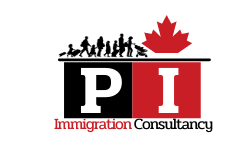
Family Reunification
Overview
Family reunification is one of the pillars of Canada’s immigration system as Canada has sought to welcome immigrants to strengthen its economy and bring families together. The family class is the second-largest category of newcomers welcomed by Canada under its Immigration Levels Plan.
Your sponsored relatives can live, study, and work in Canada if they become permanent residents BUT It requires you, as an individual, to make a commitment to provide for basic needs and to support that person financially.
TIPS
Can I be a sponsor?
To sponsor a family member, you are eligible to sponsor certain family members to Canada if you’re :
i. A Canadian citizen or permanent resident of Canada, person registered in Canada as an Indian under the Canadian Indian Act
ii. 18 years of age or older
iii. Able to support the sponsored person for certain years
Who can I sponsor?
Spouses and common-law partners
Dependent children
Parents and grandparents
EXCEPTIONS: It may be possible to sponsor a non-immediate family member (for example, a sister, niece, or uncle) if you do not have any other immediate family member, and/or you have not legally adopted and they meet the definition of a dependent child.
INCOME REQUIREMENT
As a sponsor, you are required to sign a Sponsorship Agreement with your sponsored family member. This is a commitment by you to provide financial support for the basic needs (food, clothing, shelter, and health needs not covered by public health services) of the person you are sponsoring.
For some types of sponsorships, you will also have to meet or exceed the Low Income Cut-off (LICO), for instance, if:
you are sponsoring a spouse or partner who has a dependent child and that dependent child has one or more children of their own, or
you are sponsoring a dependent child who has one or more dependent children of their own, or
you are sponsoring a parent or grandparent.
If you reside in Quebec, you will have to meet Quebec’s sponsorship requirements and your income will be assessed by the Quebec immigration ministry. Sponsor your wife, husband, or common-law partner Spouse or Common Law-Partner Sponsorship
If you are a Canadian citizen or permanent resident of Canada you may sponsor:
Your spouse (you are legally married)
Common-law partner (you are not legally married but have been living together for at least 12 months in a conjugal relationship).
Conjugal partner (you are not legally married or in a common-law relationship and they are living outside Canada)
To be eligible for spousal or common-law partner sponsorship, you must:
be 18 years of age, a Canadian permanent resident living in Canada, or a Canadian citizen, demonstrate that you can provide for the basic needs of yourself and your spouse or partner, Prove your relationship with the sponsored person is genuine by providing supporting documentation.
Types of spousal or common-law sponsorship applications:
Inland: The application can be made from within Canada because the person you wish to sponsor is currently in Canada. This type of sponsorship allows applicants to continue to live in Canada while their application for permanent residence is being processed.
Inland spousal application gives the person you are sponsoring the opportunity to apply for an open work permit that would allow them to work for any employer in Canada while the sponsorship application is being processed.
It is possible for spouses or partners to come to Canada by first applying for a Temporary Resident Visa (TRV).
Outland: The application is made from abroad through an Embassy or Consulate.
In this case, the person you are sponsoring and who resides abroad will normally wait for permanent residence outside of the country but may visit you in Canada but have to apply for a Temporary Resident Visa (TRV).
Dependent Child Sponsorship
You can sponsor your dependent children, whether natural or adopted, to live with you as permanent residents in Canada.
Children must meet the following definition of a dependent child to be eligible for sponsorship:
A child is considered a dependent if he or she is not married or in a common-law relationship and is under 22 years of age.
If a child is over 22 years of age, they may be considered dependent if they have a physical or mental condition that prevents them from being able to support themselves.
To be eligible under this program:
You must prove your relationship with the child you are sponsoring, either by a birth or adoption certificate.
You and your child abroad must be approved by Immigration, Refugees and Citizenship Canada (IRCC) to receive a visa,
What is the processing time?
INLAND SPOUSAL APPLICATION: The current processing time for spousal sponsorship application is 12 months
OUTLAND APPLICATION: Processing times vary depending on the country
Parents and Grandparents Sponsorship
The Parent and Grandparent Sponsorship Program offers Canadian citizens and permanent residents the opportunity to bring their parents and grandparents to Canada.
ELIGIBILITY
i.You must be a Canadian citizen or permanent resident living in Canada
ii. At least 18 years of age,
iii. Must be the child or grandchild of the person(s) you are sponsoring
iv. Meet the Minimum Necessary Income (MNI) required for the size of their family unit and provide Canada Revenue Agency issued notices of assessment as proof
v. Sign a sponsorship agreement that acknowledges your promise to provide for the basic needs of the family member(s) for a period of 20 years
vi. Sign an additional agreement if you live in Quebec.
vii. Your spouse or common-law partner can help you meet the income requirement by co-signing the undertaking.
If a co-signer is helping you meet the MNI requirements, the co-signer must meet the same eligibility criteria as you, the sponsor. In addition, your co-signer must:
not be the person being sponsored,
have cohabited with you in a conjugal relationship for at least one year.
Super Visa Program
The Super Visa Program allows parents and grandparents to come to Canada on extended multiple-entry visas that can last up to 10 years in total.
This program is always open, and it is possible to apply at the same time as the PGP.
Eligibility
You must be the parent or grandparent of a Canadian citizen or a permanent resident of Canada,
Have signed a letter of invitation from your child or grandchild,
Have medical insurance
Apply for the super visa from outside Canada.
Your Canadian child or grandchild will have to prove that their household meets the minimum necessary income.



